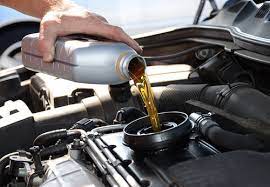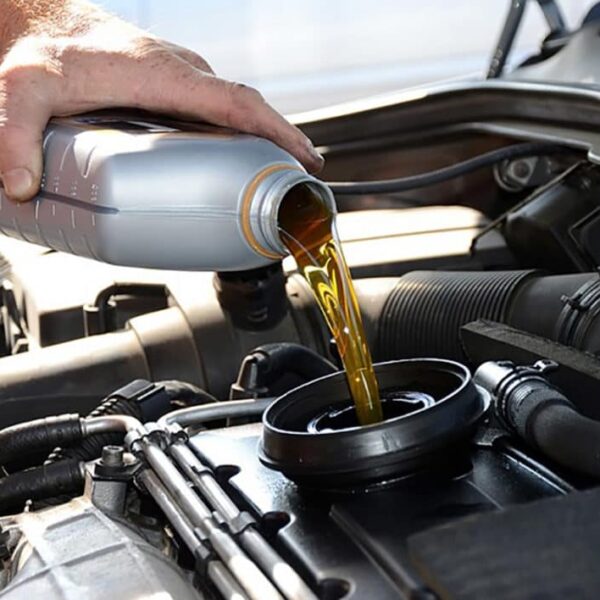In this discursion of Engine Oil Compatibility with Various Fuel Types brings us to the awareness that the automotive industry is undergoing a significant transformation, with a growing focus on sustainability and efficiency. Central to this shift is the evolution of engine fuels—from traditional gasoline and diesel to newer, more eco-friendly alternatives like bio-diesel, natural gas, and even hydrogen. This change is not just affecting how vehicles are powered, but also what lubricants they require. As vehicles adapt to diverse fuel sources, the need for specialized engine oils has become critical to ensuring optimal performance.
Electric vehicles (EVs) are rapidly gaining traction, heralded as the future of transportation. Countries across the globe, especially China, are leading the charge toward electrification. However, the transition is not immediate. With millions of internal combustion engine (ICE) vehicles still on the roads, the automotive industry must balance this gradual shift with maintaining existing infrastructure for conventional engines.
Different fuel types demand different types of engine oils. This is because each fuel has unique properties that affect engine performance, wear, and emissions. For instance:
- Diesel engines require oils that are heavier and more resilient under high-pressure conditions.
- Bio-diesel introduces additional complexities, such as the need for oils with better oxidation resistance.
- Natural gas engines need oils formulated to handle higher operating temperatures and potential moisture content.
- Hydrogen-powered engines, while offering clean emissions, present new challenges related to metal embrittlement and would likely eliminate the need for traditional lubricants in fuel-cell systems.
These innovations in fuel and oil technology represent a fascinating intersection of environmental progress and engineering challenges. As automakers continue to explore new energy sources, the formulation of engine oils must evolve in parallel, ensuring engines of all types remain efficient, durable, and clean. The journey toward sustainable mobility may still be in its early stages, but one thing is clear: as fuel choices diversify, so too must the oils that keep engines running smoothly.
The Growing Influence of Electric Vehicles (EVs)
The rise of electric vehicles (EVs) is one of the most significant shifts in the automotive industry today. Although electric mobility is still in its early stages in many parts of the world, it is steadily gaining momentum. The global transition towards electric power is being driven by growing environmental concerns, advances in battery technology, and supportive government policies. Countries like China, which is leading the charge, are seeing rapid EV adoption, pushing the market to new heights.
However, the shift isn’t happening overnight. One of the reasons for the slow pace of change is the sheer number of internal combustion engine (ICE) vehicles still on the road. With over 300 million ICE-powered cars, trucks, and SUVs currently in use, replacing them with EVs will take decades. This means that while the EV wave is coming, it has to contend with the dominance of ICE vehicles in the present.
Here are some key factors contributing to the growing influence of EVs:
- Environmental Benefits:
- EVs produce zero emissions at the tailpipe, making them a cleaner alternative to traditional gasoline and diesel engines.
- They contribute significantly to reducing greenhouse gas emissions, particularly in countries aiming to meet climate targets.
- Technological Advances:
- Battery technology has improved significantly, with longer ranges and faster charging times making EVs more practical for everyday use.
- Innovations in energy storage and efficiency are also lowering the cost of EV production, making them more affordable to the average consumer.
- Government Support:
- Many governments worldwide are offering tax incentives, subsidies, and rebates to encourage consumers to make the switch to electric vehicles.
- Some countries have also set ambitious goals to ban the sale of new gasoline and diesel vehicles by certain dates, pushing automakers to accelerate their EV development.
Despite these advancements, the transition to electric vehicles faces some challenges. Charging infrastructure, particularly in rural areas, is still underdeveloped. In addition, the production of EV batteries requires rare materials, raising concerns about sustainability and supply chain bottlenecks. The pace of change is therefore tempered by these logistical and economic hurdles.
Nonetheless, the electric vehicle revolution is inevitable. As more manufacturers pivot towards electric models and charging networks expand, EVs will play a dominant role in the future of transportation. But, as we’ll explore in this article, internal combustion engines will continue to have their place in specific sectors for the foreseeable future. The influence of EVs is growing, but ICE vehicles are far from obsolete.
Internal Combustion Engines (ICEs): Why They Are Here to Stay
Despite the surge in electric vehicle (EV) development, internal combustion engines (ICEs) are far from obsolete. While the future of transportation appears to be trending toward electrification, there are several reasons why ICEs will remain essential in specific sectors for years to come. For many industries, particularly those involving heavy-duty operations, ICE vehicles continue to be the most practical and efficient option.
One of the key factors keeping ICEs relevant is their unmatched power for towing and hauling. Electric trucks, especially those designed to tow large loads, currently face significant technical limitations. Jim Farley, CEO of Ford, stated that electric vehicles aren’t ideal for tasks like pulling heavy loads, which is a major requirement for trucks such as the Ford F-250. He noted that 95% of Ford’s F-250 Superduty customers tow more than 10,000 pounds, highlighting that EVs aren’t yet suited for such rigorous applications. The same can be said for other heavy-duty vehicles, including large pickups, tractors, and industrial machines.
- Technical Limitations of EVs:
- Large battery capacity requirements for trucks towing over 10,000 pounds.
- Increased charging times and the need for robust charging infrastructure.
- Decreased range and efficiency when operating under heavy loads.
ICEs also have an advantage when it comes to infrastructure. Although EV charging networks are expanding, they are still far from being as ubiquitous as gasoline or diesel fueling stations. For industries dependent on reliability and minimal downtime, ICE-powered vehicles offer convenience and efficiency that EVs cannot yet match. Heavy-duty trucks, for instance, need to cover long distances with minimal stops, something that’s more feasible with ICEs than EVs. The charging time for electric trucks can range from 30 minutes to several hours, depending on the charger and the size of the battery. For commercial fleets, this extended downtime can lead to inefficiencies.
Beyond practicality, ICE technology is continually evolving. Modern engines are more efficient, cleaner, and more durable than ever before. With advancements in emissions control and fuel efficiency, ICEs are becoming more environmentally friendly. Technologies such as turbocharging, direct injection, and hybridization are pushing the boundaries of what these engines can achieve while still adhering to stringent emission standards. In addition, alternative fuels like bio-diesel and renewable diesel are further extending the lifespan of ICE technology by reducing its environmental impact.
- Advantages of ICEs Over EVs:
- Extensive refueling infrastructure already in place.
- Ability to handle heavy loads over long distances with minimal downtime.
- Technological advancements improving efficiency and reducing emissions.
In sectors like agriculture, logistics, and construction, ICE vehicles remain critical tools. These industries require machines that can operate under harsh conditions, perform heavy-duty tasks, and travel long distances without frequent stops. EVs, though promising in many areas, are not yet capable of delivering the consistent power and range that ICE vehicles provide.
In summary, while the electric revolution is on its way, internal combustion engines will remain indispensable for specific sectors for decades to come. Their unparalleled power, flexibility, and infrastructure make them a crucial component of industries that rely on heavy-duty vehicles. As ICE technology continues to evolve and adapt, its relevance in the automotive landscape will persist, especially in areas where EVs have yet to prove themselves.
Diesel Engines: A Key Player in Heavy-Duty Sectors
Diesel engines have long been the backbone of heavy-duty vehicles, and despite the growing trend towards electric vehicles (EVs), they continue to play a crucial role in specific sectors. For industries that rely on high-power vehicles—such as trucking, construction, and agriculture—diesel engines are indispensable due to their unmatched torque and fuel efficiency for long hauls and heavy loads.
Current Diesel Landscape
While passenger cars are gradually shifting towards electric power, diesel-powered trucks and commercial vehicles are still in high demand. These vehicles are responsible for transporting goods across vast distances, a task that requires engines designed for endurance and power. As a result, diesel engines remain essential, and so does the need for high-quality diesel engine oils.
- API CK-4 Standards: Diesel engines, especially those in commercial fleets, require API CK-4 engine oil, which is designed to provide better protection and performance under extreme conditions.
- Future of Diesel Oil: Although the automotive industry is evolving, there will still be a significant demand for diesel engine oils, like API CK-4, in the coming years to meet the needs of existing diesel-powered vehicles.
Emerging Diesel Alternatives
However, the diesel landscape is not static. In response to growing environmental concerns, alternatives like bio-diesel and plant-based fuel blends are emerging as more eco-friendly options. These alternative fuels, while promising, come with their own set of challenges—particularly in how they interact with engine oils.
- Bio-Diesel and Blends: Bio-diesel is gaining attention as a renewable alternative to conventional diesel. However, higher concentrations of bio-diesel in fuel blends can cause issues such as increased oxidation and the formation of engine deposits.
- Oil Reformulation Needs: With fuels like bio-diesel, the engine oil must be reformulated to provide better oxidation resistance, rebalance detergents, and improve anti-wear properties. This is particularly important at higher bio-diesel concentrations, where traditional diesel oils may fall short.
Technical Considerations for Bio-Diesel
The use of bio-diesel presents both opportunities and obstacles. While bio-diesel can reduce a vehicle’s environmental footprint, it requires more than just a switch in fuel. Engine oil formulations must adapt to ensure the longevity and performance of the engine.
- Oxidation Resistance: Bio-diesel contains chemical species that are less stable than petroleum-based diesel, increasing the likelihood of oxidation. This calls for engine oils with enhanced antioxidant properties.
- Deposit Formation: In tests, higher concentrations of bio-diesel (such as 20%) led to unacceptable engine deposits. This suggests that new additives and reformulations will be essential for bio-diesel to become a widespread fuel alternative.
- Anti-Wear Agents: As the viscosity of the oil needs to align with finished oil grades, some reformulation will be required. Anti-wear agents may also need to be adjusted to protect the engine under these new conditions.
Diesel engines are not only here to stay but will continue to evolve with new fuel sources. This makes the role of diesel engine oils more important than ever as they are expected to meet the challenges posed by these new fuels while maintaining engine performance and reliability.
Natural Gas Engines: Fueling Stationary and Automotive Applications
Natural gas has long been recognized as a viable fuel source for both stationary and automotive applications. Its availability and lower emissions profile compared to traditional liquid fuels make it an attractive option for certain sectors. While not as commonly used in everyday vehicles as gasoline or diesel, natural gas plays a critical role in powering specific types of engines, particularly those used in stationary operations like power plants or industrial sites.
Natural Gas as a Fuel Source
Natural gas is not new to the world of internal combustion engines, although its use is more prevalent in certain contexts. It has proven effective for large, stationary engines, as well as for modified light trucks and automobiles. These vehicles are typically adapted to run on compressed natural gas (CNG) or liquefied natural gas (LNG), which burns cleaner than traditional fuels like diesel or gasoline.
- Stationary Engines: Large engines used for industrial power generation or operations in remote areas, such as offshore platforms, often rely on natural gas.
- Automotive Engines: Light trucks and some modified passenger vehicles have been adapted to run on CNG or LNG, particularly in fleets where environmental regulations or cost savings are a priority.
Natural gas offers several benefits:
- Lower Emissions: It produces fewer pollutants, such as nitrogen oxides (NOx) and particulate matter, compared to diesel.
- Cost Efficiency: In some regions, natural gas is cheaper than traditional fuels, making it a cost-effective option for fleet operators.
- Reduced Carbon Footprint: Its lower carbon emissions contribute to reducing greenhouse gases, which is particularly important for companies aiming to meet sustainability goals.
Challenges in Natural Gas Engine Oils
However, using natural gas in engines also comes with unique challenges, especially when it comes to engine oil formulation. Natural gas-fueled engines tend to run hotter than their liquid-fueled counterparts. This increased operating temperature places additional stress on the engine oil, which must be specifically formulated to handle these conditions.
Key oil formulation challenges for natural gas engines include:
- Increased Antioxidant Requirements: Higher operating temperatures accelerate oxidation, so natural gas engine oils need more robust antioxidant packages to prevent oil breakdown.
- Corrosion Inhibitors: Natural gas often contains water vapor, which can lead to corrosion within the engine. Specially formulated oils include corrosion inhibitors to protect engine parts from rust and corrosion.
- Dispersants: As engines accumulate deposits from fuel combustion, dispersants in the oil help to prevent the buildup of harmful sludge and varnish, ensuring smoother engine operation.
Specialized Oils for Natural Gas Engines
For automotive engines modified to run on natural gas, traditional motor oils may not always be suitable. Back in the day, oils like SAE 30 Pennzoil were recommended for natural gas-powered light trucks, and they performed adequately. However, as natural gas has become more widely adopted in industrial settings, the need for specialized oils has grown.
- Lower Sulfated Ash and Zinc Levels: In certain large industrial engines, especially those operating in remote locations, engine oils with reduced sulfated ash and lower zinc levels are preferred. This helps prevent deposit formation and ensures longer engine life.
- EMD Engines and Zinc Sensitivity: Some specialized engines, like those manufactured by the Electro-Motive Division (EMD), require oil formulations with no zinc content at all. Zinc additives, which are common in many traditional oils, can react with silver components in EMD engines, causing premature bearing failures.
In these cases, engine oils must be carefully formulated to meet the specific needs of natural gas engines without compromising engine performance or longevity.
Natural gas engines, both stationary and automotive, represent a unique segment of the fuel market that demands tailored lubrication solutions. While natural gas offers environmental and cost benefits, the oils used in these engines must be formulated to address higher temperatures, corrosion risks, and specific additive requirements. As the use of natural gas expands in industrial and specialized vehicle fleets, the demand for high-performance natural gas engine oils will continue to grow, ensuring smooth and efficient operation in even the most challenging environments.
Hydrogen: The Future Fuel with Unique Challenges
Hydrogen holds immense potential as a clean and sustainable fuel for the future, but it also presents unique challenges that the automotive and energy industries must address. The appeal of hydrogen as a fuel is its environmentally friendly nature. When burned, it produces water vapor as its only byproduct, making it an ideal solution for reducing emissions and combating climate change.
However, despite its advantages, hydrogen is not without its hurdles. One of the primary issues is hydrogen embrittlement, which occurs when hydrogen atoms penetrate metals, causing them to become brittle and crack. This phenomenon affects the durability of crucial engine components, leading to significant concerns about the long-term reliability of hydrogen-powered engines. Major redesigns of engine materials and parts would be necessary to prevent this issue.
- Hydrogen Embrittlement:
- Weakens metal components by penetrating the atomic structure.
- Requires specialized materials to prevent long-term damage.
In addition to material challenges, hydrogen storage and transportation pose logistical issues. Hydrogen must be stored under high pressure or in liquid form at extremely low temperatures, both of which require advanced technology and infrastructure. These complexities add to the cost and challenge of adopting hydrogen as a mainstream fuel, especially in automotive applications where space and efficiency are paramount.
- Storage Challenges:
- Requires high-pressure tanks or cryogenic storage.
- Complex infrastructure needed for transportation and refueling.
While these technical obstacles exist, hydrogen’s potential to fuel hydrogen fuel cells is more promising. In a fuel cell, hydrogen can be used to generate electricity rather than directly powering an engine. This process eliminates the need for traditional engine lubricants, as there are no moving mechanical parts like in a combustion engine. Fuel cells produce electricity by combining hydrogen with oxygen, emitting only water vapor as exhaust, making it an exceptionally clean energy source.
- Hydrogen Fuel Cells:
- Generate electricity with no harmful emissions.
- No need for engine lubricants due to the lack of moving parts.
Several automakers are already investing in hydrogen fuel cell technology for their future fleets. Though the research is still in its early stages, many believe that hydrogen fuel cells may become a viable alternative for larger vehicles like trucks and buses, where batteries are less practical due to weight and charging constraints.
In conclusion, while hydrogen offers a vision of clean energy with zero harmful emissions, the road to making it a widespread fuel is filled with technological and material challenges. The potential of hydrogen fuel cells, however, represents a bright future, particularly for heavy-duty applications where other alternatives fall short.
Future of Engine Oils: Meeting the Needs of Diverse Fuels
The future of engine oils is intrinsically tied to the evolution of fuels used in both personal and commercial vehicles. As the automotive industry continues to diversify fuel sources—from traditional gasoline and diesel to biodiesel, natural gas, and even hydrogen—the demand for specialized engine oils will increase. Each of these fuels presents unique challenges for engine performance, and consequently, oil formulations must adapt to these evolving needs.
Fuel Choice Dictates Engine Oil Formulation
One of the primary factors that will influence the future of engine oils is the type of fuel used. Different fuels result in distinct combustion environments, which have varying effects on engine components such as pistons, valves, and bearings. To address these variations, engine oils will need to be formulated with:
- Enhanced oxidation resistance: Biodiesel, for example, contains chemical species that are less stable than traditional diesel, increasing the risk of oxidation. Oils for these engines must include additives that improve oxidation resistance.
- Custom detergents and dispersants: Fuels like biodiesel can also lead to greater deposit formation. Engine oils will require rebalanced detergents and dispersants to keep engines clean and functional.
- Anti-wear technology: Natural gas and biodiesel-powered engines may also demand different anti-wear agents to protect engine components from excessive friction and wear.
The Challenge of “One Oil Fits All”
For major fleet operators, having a single type of engine oil for various types of engines would be ideal. However, this “one-size-fits-all” solution is unlikely to meet the needs of every fuel type due to their chemical and operational differences. Biodiesel, natural gas, and hydrogen-powered engines all introduce specific challenges, and the oil industry will need to develop more targeted formulations. While this increases complexity, there may be some overlap, allowing for a range of oils to cover multiple fuel types.
Predictions for Engine Oil Advancements
The engine oil industry is likely to see significant innovation as new fuel technologies emerge. Key advancements will include:
- Additive technology breakthroughs: With the introduction of alternative fuels, new additives will be required to ensure that engine oils maintain performance standards across various operating conditions. These advancements will focus on improving heat resistance, deposit control, and wear protection.
- Lower viscosity oils: As fuel types evolve, there may be a push toward lower viscosity base oils to meet fuel efficiency standards. Lower viscosity oils reduce friction and can improve fuel economy, making them desirable as stricter emissions regulations come into play.
Here’s a chart summarizing the compatibility of various engine oils with different fuel types, highlighting their suitability for each category:
| Fuel Type | Oil Type | Compatibility | Notes |
|---|---|---|---|
| Gasoline | Conventional Motor Oil | Compatible | Standard oils formulated for gasoline engines. |
| Synthetic Motor Oil | Compatible | Offers better performance and protection under high temperatures. | |
| High-Mileage Motor Oil | Compatible | Designed for older vehicles with higher mileage; includes additives to reduce wear. | |
| Diesel | Diesel Engine Oil (API CK-4) | Compatible | Essential for diesel engines; formulated to handle soot and higher temperatures. |
| Bio-Diesel Compatible Oil | Compatible | Designed to handle the unique properties of bio-diesel; may require reformulation for higher blends. | |
| Natural Gas | Natural Gas Engine Oil | Compatible | Specifically formulated for natural gas engines; includes additives to manage higher combustion temperatures. |
| Heavy-Duty Engine Oil | Generally Compatible | Used in mixed fleets but may require specialized formulations for certain engines. | |
| Hydrogen | Specialized Engine Oils | Limited Compatibility | Hydrogen combustion leads to different wear characteristics; often used in fuel cells, which don’t require lubricants. |
| Ethanol | Ethanol-Compatible Oil | Compatible | Must include specific additives to manage the effects of ethanol; not all conventional oils are suitable. |
| Synthetic Oil | Compatible | Provides enhanced protection against moisture and corrosion often associated with ethanol fuels. | |
| Biodiesel | Bio-Diesel Engine Oil | Compatible | Designed to manage the properties of biodiesel; requires additives for oxidation stability. |
| Conventional Diesel Oil | Generally Compatible | May work but with potential for deposit formation at higher concentrations; performance can vary. |
As vehicles diversify in fuel choices, the role of engine oil will continue to evolve. Keeping engines protected and efficient while using these new fuels will require ongoing research, reformulation, and innovation in the oil industry.
Conclusion: The Role of Engine Oils in a Changing Automotive Landscape
As the automotive industry undergoes a significant transformation, the role of engine oils remains crucial. Electric vehicles (EVs) are undeniably the future of mobility, yet internal combustion engines (ICEs) are not disappearing anytime soon, particularly in heavy-duty applications. This evolving landscape presents both challenges and opportunities for engine oils.
- Key Takeaways:
- The widespread adoption of EVs, especially for passenger cars, is on the horizon, but ICEs will continue to play a vital role for decades to come.
- Heavy-duty vehicles such as trucks, construction equipment, and industrial machines still rely heavily on diesel and other combustion engines.
- Different fuels, such as bio-diesel, natural gas, and hydrogen, bring about unique demands in engine oil formulation, requiring innovations in additive technologies and viscosity balancing.
For heavy-duty vehicles and industrial engines, the need for specialized engine oils remains paramount. EVs may not require traditional engine lubricants, but as long as diesel, bio-diesel, and natural gas are in play, advancements in oil technology will be essential. These advancements will focus on:
- Improved Oxidation Resistance: To combat the instability in bio-based fuels.
- Balanced Detergents and Dispersants: Essential for preventing harmful deposits and ensuring long-term engine health.
- Specialized Anti-Wear Agents: Especially crucial for natural gas engines and new fuel types like hydrogen, which can have different chemical interactions.
Despite the technological advancements surrounding electric power, ICEs are far from obsolete. Large trucks, industrial engines, and even certain classes of light-duty vehicles will continue to depend on fossil fuels or alternative fuels like bio-diesel and natural gas. Each fuel presents its own set of requirements for engine oils, making the development of fuel-specific lubricants an ongoing necessity.
- Future Outlook:
As the market continues to diversify, oil manufacturers must innovate to keep up with the changing demands. Bio-diesel blends, natural gas, and hydrogen-powered engines all demand oils that can withstand different temperatures, chemical compositions, and wear patterns. The ability to create unified solutions for mixed fleets (where ICE and EVs coexist) may also shape the future of the oil industry.
In conclusion, while electric vehicles will dominate the market, ICEs and alternative fuels are not disappearing overnight. The ongoing relevance of these engines underscores the critical role engine oils will play. The future of engine oils will be defined by innovation, adaptability, and the ability to cater to an increasingly diverse fuel landscape.

Author: Frank Jenkins
Frank Jenkins – Family Car Expert and Safety Advocate
Frank Jenkins, steering you towards safer and smarter family driving. Based in: New York, New York, USA
About Me
Greetings from New York City! I’m Frank Jenkins, your navigator in the world of family vehicles and automotive safety. With over 15 years of experience as an automotive writer and safety consultant, I focus on what matters most to families on the go. Through rigorous testing and detailed research, I ensure that your next family car is not only comfortable and stylish but also packed with the latest safety features.
Contact Information
Topics of Interest
- Family-Friendly Car Reviews
- Vehicle Safety Systems
- Child Passenger Safety
- Road Trip Planning and Car Entertainment
Memberships
More About Frank
Short Bio: Frank Jenkins has become a household name for parents seeking advice on the best and safest cars for their families. His reviews are infused with a parent’s concern and an engineer’s precision. Education: Bachelor of Science in Automotive Technology from the New York University Qualifications: Certified Child Passenger Safety Technician (CPST) Languages: English (Native), French (Intermediate) Previous Roles:
- Safety Feature Columnist for Family Wheels Magazine
- Technical Advisor for Safe Car Campaigns
- Host of “The Safe Family Road Trip” Podcast
Fun Fact: Frank once organized a cross-country road safety workshop, visiting over 50 cities in 30 days.
Interactive Features
- Safety First with Frank: A forum dedicated to discussing and sharing best practices for family road safety.
- Frank’s Philosophy: “The best family memories are made in cars that put safety above everything else.”
- Your Stories: A section for readers to share their family road trip experiences and car-related anecdotes.
Featured Content
Newest Articles:
- “The Ultimate Guide to Family Cars in 2024”
- “Innovations in Car Safety: What Families Need to Know”
Highlighted Content:
- “Minivan or SUV: The Great Family Debate Resolved”
- “Child Seats 101: Choosing the Right One for Your Car”
Recommended Reads:
- “The Road to Safety: How Cars Have Become Safer for Children”
- “Entertaining Your Kids on the Road: Tips and Tricks”
Multimedia Spotlight:
- Podcast: “Drive Time Family” – Discussions on making family travel safer and more enjoyable
- Video Series: “Car Seat Clinics” – Demonstrations on proper car seat installation and usage
Editorial Team & Collaborations
Frequent Co-authors:
- Emily Chen, Urban Driving Specialist
- Marcus O’Reilly, Off-Road Adventure Guru
Editorial Staff Overview: A team of dedicated writers and safety experts committed to helping families make informed decisions about their vehicles. Editorial Guidelines: We are steadfast in providing transparent and practical advice that prioritizes the well-being of all passengers.
Journey With Me
For reliable reviews, safety advice, and the best in family automotive, hit the road with Frank Jenkins at oilforcar.com






Pingback: The Impact of Low Viscosity Engine Oils on Engine Wear and Performance - Explore Oil For Car -Motor Oil Maintenance and Car Tips
Pingback: How Cold Temperatures Affect Engine Oil: Essential Tips for Winter Driving - Oil for Car – Car Oil Reviews, Guides, & Car Tips
Pingback: How to Extend the Life of Your Turbocharger: 7 Essential Maintenance Tips - Oil for Car – Car Oil Reviews, Guides, & Car Tips
Thank you for being of assistance to me. I really loved this article.
Pingback: Best Heavy Duty Engine Oil for Your Diesel Engine - Oil for Car – Car Oil Reviews, Guides, & Car Tips
May I request more information on the subject? All of your articles are extremely useful to me. Thank you!
Pingback: Understanding the Difference Between API CK-4 and FA-4 Engine Oils - Oil for Car – Car Oil Reviews, Guides, & Car Tips